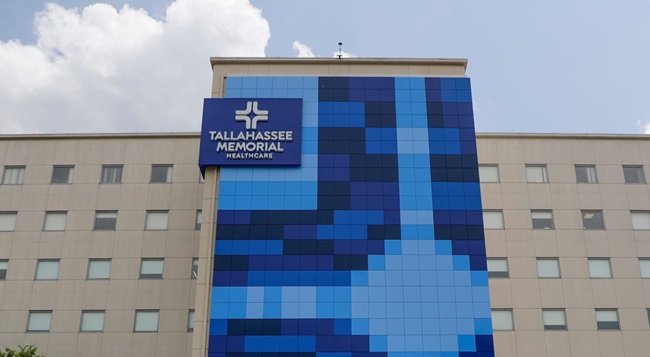On Wednesday, October 1, at 9:00 a.m., the Tallahassee City Commission will hold a meeting at city hall to address the FSU and TMH Memorandum of Understanding.
On September 16, 2025, FSU President Richard McCullough and TMH Chief Executive Officer Mark O’Bryant sent a joint letter to the Mayor and City Commission (Attachment 1) to share the news that the two parties had ratified a Memorandum of Understanding (Attachment 2) that outlines the structure of the new partnership and basis for subsequent development.
The meeting will feature a joint presentation by Florida State University & Tallahassee Memorial HealthCare, followed by commission discussion and public input.
The agenda for the meeting, provided by city staff, details important parameters of the proposed agreement. Provided below are answers to five questions based on information provided in the agenda.
Who will own the land, buildings, and improvements currently owned by the city?
To advance this partnership, the City has been requested to transfer ownership of the hospital campus assets (land, buildings, and improvements) to FSU, with TMH leasing the property under a new long-term Lease and Operating Agreement from FSU. This partnership is contingent on the transfer of ownership. This step would mark the next chapter in a successful public–private partnership, safeguarding TMH’s future, keeping healthcare locally led, and aligning our community with one of the State’s premier universities.
Why is a change in ownership needed?
FSU’s request for ownership of the City’s hospital campus assets would allow them to plan, finance, and build the academic components of an AMC with a long-term outlook. State and federal appropriations for academic medical centers must be directed to university-owned facilities, and without ownership, FSU cannot access the scale of investment needed to build out classrooms, simulation labs, and research facilities directly alongside TMH’s clinical operations.
Under the proposed structure, FSU Health would be able to draw additional research funding and federal reimbursements. Transferring ownership paves the way for future investment in TMH, maintains access to tax-exempt conduit financing, and allows FSU to unlock external funding streams, ensuring that tax dollars are invested in our community rather than diverted to other regions.
How will the Governance Structure work?
Governance will be restructured to reflect FSU’s new role. In the first year, the TMH Board will consist of 17 voting members, with seven directors (41 percent control of the board) appointed by FSU and ten directors (59 percent control of the board) appointed by TMH. In the second year, FSU’s representation will increase to eight directors (47 percent control of the board) while TMH will appoint nine directors (53 percent control of the board). This structure provides FSU with less than half of the Board seats, while TMH maintains the majority.
At least seven directors must be licensed physicians, ensuring that medical expertise remains central to decision-making. Additionally, significant actions, such as the appointment or removal of the Chief Executive Officer, mergers, or amendments to governing documents, will require supermajority approval (13 to 15 out of 17 votes). This governance control ensures that neither FSU nor TMH can exercise unilateral control and that governance decisions reflect a broad consensus.
Will TMH maintain its mission related to charity-care?
The MOU reaffirms TMH’s role by stating that TMH will maintain its existing charity-care policy. TMH’s current charity-care includes financial assistance through free or discounted emergency and medically necessary care to eligible patients. The MOU keeps day-to-day operational and financial responsibility with TMH. The document does not propose a change to TMH’s federal tax-exempt standing; rather, it preserves TMH’s nonprofit, community-focused mission of transforming care, advancing health, and improving lives.
Who is responsible for running TMH?
The MOU keeps day-to-day financial responsibility within TMH’s purview. TMH remains responsible for the costs of operating the hospital campus, including facilities upkeep, licenses, and a full suite of insurance coverages, and for employing the workforce and funding compensation and benefits. It also makes TMH solely responsible for maintenance and repairs and requires facilities to be kept in a state of good repair. TMH pays any applicable taxes tied to the campus, and the existing nominal rent structure to reflect their capital and maintenance obligations.


Secure TMH, secure funding for a whole second bite at the Shands apple for the I-10/I-75 corridor and rebalance things to that effect. Get those multiplier effects and let the capital city thrive. A hotel or even a small cluster of them at the airport adds value, it’s time for us to level up where we can, when we can.
I’m 100% for this. The city has owned it for decades and we still have to drive to other cities for quality specialist care. We have TWO UNIVERSITIES and this is absurd.
Establishing a teaching hospital like this will help to stop the brain drain retaining high quality medical talent, increasing the tax base, generating more travel to and from the airport for such quality care and research/teaching/learning and build out an industry that isn’t government or lobbyists…or another chicken finger joint.
Anyone opposed to this has never (I’m looking at your disheveled self, Matlow) had to drive to Shands or Mayo for care that should be here right around the corner from two nationally recognized universities.
The city had their chance and they blew it.